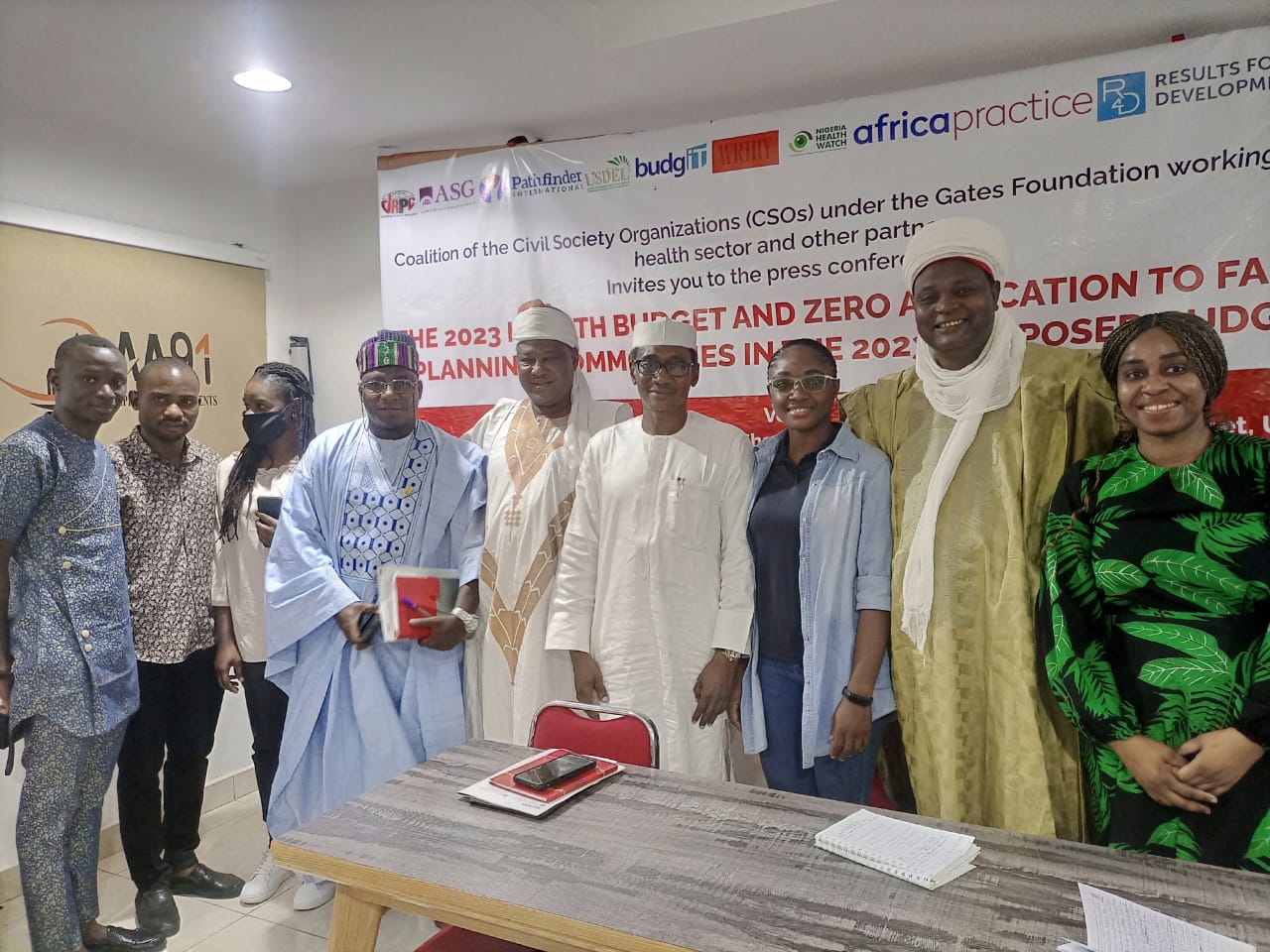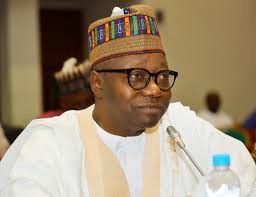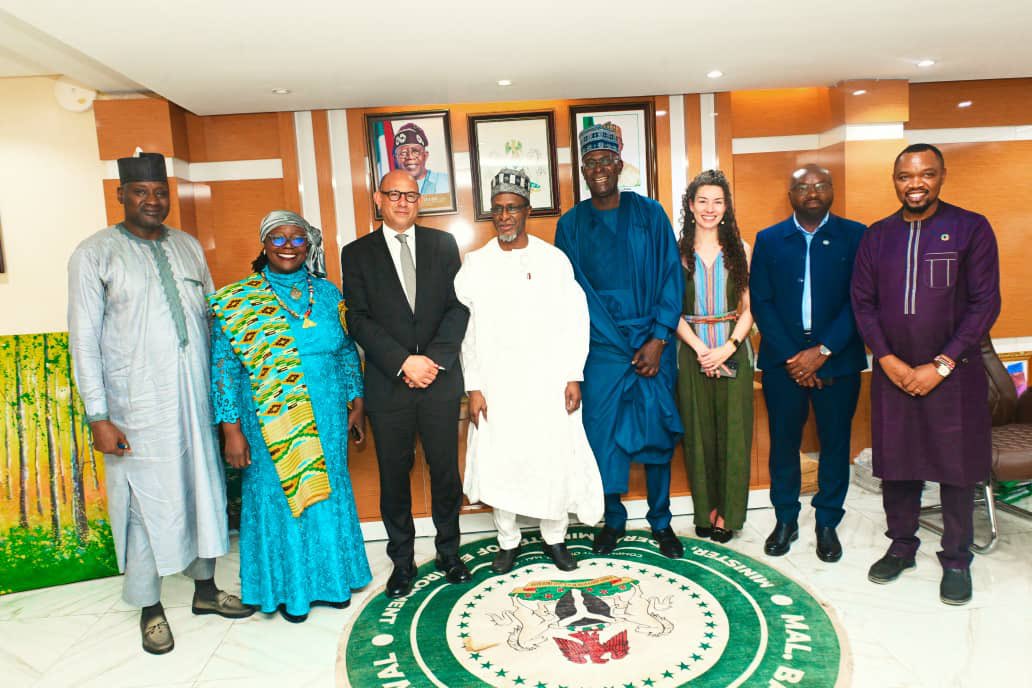
LISDEL, development partners, and CSOs, organized a press conference for increased public investment in the health sector
- Health SectorHealth SecurityNational Assembly NigeriaSPAG Projects
- No Comment
- 302
The 2023 Appropriation Bill was laid at the National Assembly on Friday, 7th of October 2022 by His Excellency, President Muhammadu Buhari. It is currently undergoing further legislative scrutiny, after which a revised version will be sent back to the President for assent. With a total budget estimate of N 20.5 trillion, for the first time, over 1 trillion Naira was allocated to the health sector with a budget share of 5.75% as against 4.7% in the 2022 Amended National Budget.
However, while this is a welcome development, there are still some perceived gaps that need to be addressed. For instance, while the budget line for Family Planning has been re-introduced, the allocated N20 million is grossly inadequate, viewed against the Country’s population and human development indices, and requirements for stability.
The Civil Society Organizations (CSOs) under the Gates Foundation working in the health sector and other partners on Thursday 10th of November, held a press conference in Abuja to sensitize the public on the need to increase and sustain adequate public investment in the health sector.
Speaking to journalists during the press briefing, the Chairman of the National Health Advocate, Honorable Usman Mohammad, reiterated that Nigeria’s health sector has been fraught with suboptimal public investment to sustain its development and achievement of key development objectives such as Universal Health Coverage (UHC) and other health components of the Sustainable Development Goals (SDGs).
He noted that, over the last years, appropriation to the health sector in the national budget has consistently fallen short of the Abuja Declaration of the African Union that recommended a 15% allocation of the national budget to the health sector. The healthcare investment per person has also been below the recommended N6,000 per capital.
He further stated that the low level of public investment in the sector has contributed to the huge out-of-pocket payment for health by citizens in the country which currently stands at about 77% of total expenditure on health. Lack of access to and delivery of health care services are grossly inadequate, contributing to the low/negative health indices and outcomes as well as a huge disease burden in the country. Other outcomes are mismanagement of funds contributing to an increased poverty rate.
Mr. Ademuyiwa Damilola the Program Manager for the Legislative Initiative for Sustainable Development (LISDEL), a secretariat/coordinating arm of the Legislative Network for Universal Health Coverage stated that the Federal Government at two instances made commitments to fund family planning. The first was during the launch of key national policies in July where the Honorable Minister for health made a commitment that 1% of the annual health budget will be allocated for family planning. The government also made another commitment that $ 4 million will be put into the basket that will be used to fund family planning. However, these commitments have not been adhered to.
Mr. Ademuyiwa said, going forward, it is very critical for the government to galvanize political will to ensure that the commitments are implemented.
Alhaji Sani Umar Jamil, member of the national advocate and chairman association of family planning Nigeria said as traditional leaders, religious leaders, and advocates, it is high time that policymakers, government officials, and all key stakeholders come together to advocate to ensure that the budget line for family planning, commodities and procurement are increased and commitments released.
Other partners who spoke with journalists during the press briefing stressed the need to invest more in the health sector for the betterment of this generation and the ones yet unborn.
Contributors, Philip Akoso and Amaka Udoji | LISDEL





